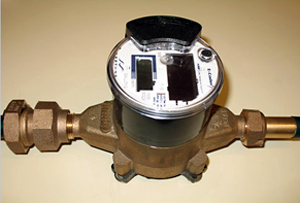
Much to the chagrin of many in Revelstoke, it seems that City Council has recently decided to hire yet another consultant to study the feasibility of introducing water metering to our fair city. While there are no immediate plans to bring meters in, Council wants to spend some money to study the issue so that they can be well prepared should they ever need this information.
The first thought one has when hearing this news from the recent City Council meeting is that this is another waste of money. When residents are still waiting for action from the transportation study in order to fix the Fourth Street and Victoria Road intersection, or spend some money to remove the graffiti from City sidewalks (is anyone accountable for this at City Hall?), the thought of spending more money on a needless study is aggravating to say the least. Not to mention the fact that once the City of Revelstoke decides it does in fact wish to introduce water meters, the information contained in this consultants’ report will be so far out of date (most City plans seem to have a shelf life of 3-5 years) that they will likely need to redo the study once more at additional cost.
In order to help out, we have decided to take the Higher Ground approach and answer the City of Revelstoke

questions about water metering here, free of charge! As noted, the City of Revelstoke is seeking a consultant to answer three key questions about water metering. Presented below are the results of a consultancy report prepared by Higher Ground Incorporated TM.
Saving water is good. As demand for fresh water only increases in coming years, there can be no argument made that water conservation could possibly be a bad thing. Reducing water consumption will help increase the longevity of current water systems. Thereby prolonging the life of aging pipes and water treatment facilities. Whether needed currently or not, this will prove to be a savvy investment for the future.
However, fostering the proper attitudes of conservation will be the only way to realize true water savings. If, currently, there is an overabundance of waste in the water system, water meters will not immediately solve that issue. People who frequently water grass, driveways or snow, will continue to do so. However with water meters implemented they will be able to recognize precisely how much water they are not saving. While not within the constraints of this report, it is recommended the City of Revelstoke study the possible merits of hiring a consultant to study the water savings to be gained through proper enforcement of current water management by laws.
In studying its water system, the City of Abbotsford found that greater education for the community was paramount. The majority of residents acknowledged the source of their water and the related systemic costs of pumping it to their homes only once a year at tax time and did nothing to conserve or understand the process the other 364 days of the year.
The environmental and social benefits outweigh the environmental and social costs of a program such as this. We exist in an age where we can no longer take scarce resources for granted. Proper conservation of all things around us can do nothing but benefit all of society now and in the future. However, it should be noted that a similar approach of electrical conservation and the implementation of smart meters by BC Hydro was met with fierce public opposition. The public relations cost to BC Hydro to mitigate what can only be perceived as a disaster was quite high and should be factored into overall operational costs of the new system. While it could be argued that the social costs of the BC Hydro program were detrimental at the time, the reality is that smart meter or no, we’re all still friends with our neighbours.
Nevertheless, the financial costs of a one time public relations blitz to counteract negative publicity surrounding the forced and misunderstood adoption of smart water meters would be much less than a long and protracted campaign of education on the merits of conservation. It may be in the long term financial interests of the City to simply bull forward with further arbitrary decisions and let the resulting fallout occur as it naturally has in the past.
Sometimes the difference between strategic thinking and strategic action is just a little common sense. We’ve had an ample supply of strategic planning these past few years, it is the recommendation of this report that it is, in fact, yes, time for some action on all those other plans before we blindly create unnecessary new ones.
Thank you. There will be no questions.



